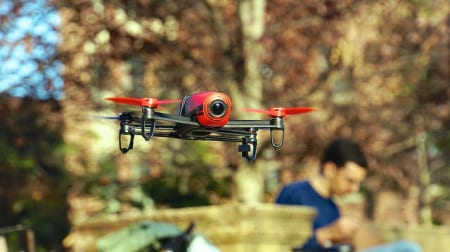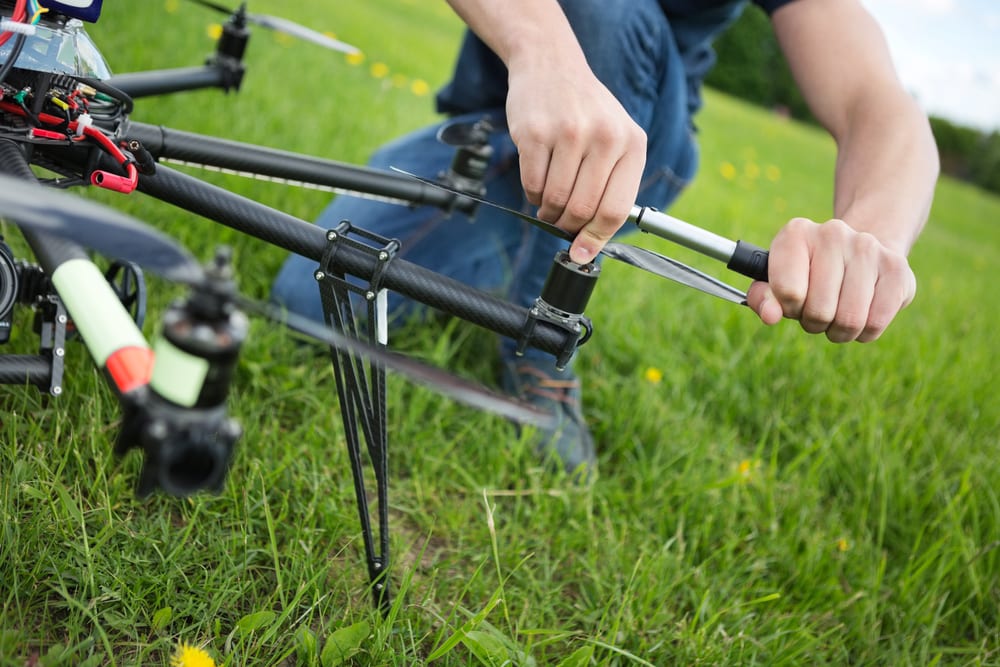As more drones take flight, the demand for people to build, maintain and fly them is growing sky-high. Forecasts show Unmanned Aircraft Systems (UAS) will become a nearly $90 billion industry in the next 10 years.
 The number of operable drones depends largely on FAA regulations, which have thus far largely prevented commercial drone operations. But those restrictions are loosening, creating new educational and career opportunities in the wake.
The number of operable drones depends largely on FAA regulations, which have thus far largely prevented commercial drone operations. But those restrictions are loosening, creating new educational and career opportunities in the wake.
In March, the FAA approved six test sites to gather data and develop guidelines for safely integrating drones into the National Airspace System (NAS). And last month the agency said it would allow three companies to test commercial drones that fly beyond their operator’s line of vision — and, in one case, in urban areas.
SEE ALSO: Meet the Drone Roughnecks That Are Saving Time, Money and Lives
You can imagine would-be drone operators like Amazon, precision agriculture companies and GE champing at the bit.
Drones Don’t Fly Without People
As companies gear up to test commercial drone operations, they need people who know how to operate, maintain and repair the aircraft. Degree and certificate programs are popping up to match demand. Kansas State University—Salina offers a bachelor’s degree in UAS, and the University of North Dakota offers a B.S. in aeronautics with a major in UAS operations.
In Thief River Falls, a town of about 10,000 in northwest Minnesota, students at the local community college study for a very specific program. The Northland Community College offers a UAS Maintenance Technician certificate program.
“We like to think of ourselves as the Harvard of UAS,” says instructor Zackary Nicklin. While other programs focus on the aerospace engineering (building drones) or piloting skills, Nicklin says few places offer maintenance.
Drone Doc Skills
While most of Northland’s students in the UAS maintenance program come from military contractors, it’s also drawing attention from potential commercial operators. In the last five months, one company approached Northland looking to hire 100 technicians in the coming year, Nicklin says.
Before students enroll in the UAS program, they must have or be in the process of getting their FAA Airframe and Powerplant certification, which covers the basic skills required to work on any aircraft. During Northland’s two-semester UAS maintenance program, students learn more technical skills including microcomputer maintenance (an overview of the software and hardware needed to install microcomputers) and networking (how the system connects to the Internet).
The program is less than five years old and roughly 40 students have received certificates.
“As the demand picks up, as the FAA allows more commercial operations in the airspace, it’s not going to go anywhere,” he says. “It’s definitely the next big thing, and we happy to be on that cutting edge.”
Across the border in North Dakota, development for the first commercial UAS business and aviation park is underway. Called Grand Sky, the center is located on the Grand Forks Air Force Base and plans to house companies that need the space to test, evaluate, research, develop and operate drones. One of the key stakeholders in the project? Northland Community College.


Share this: